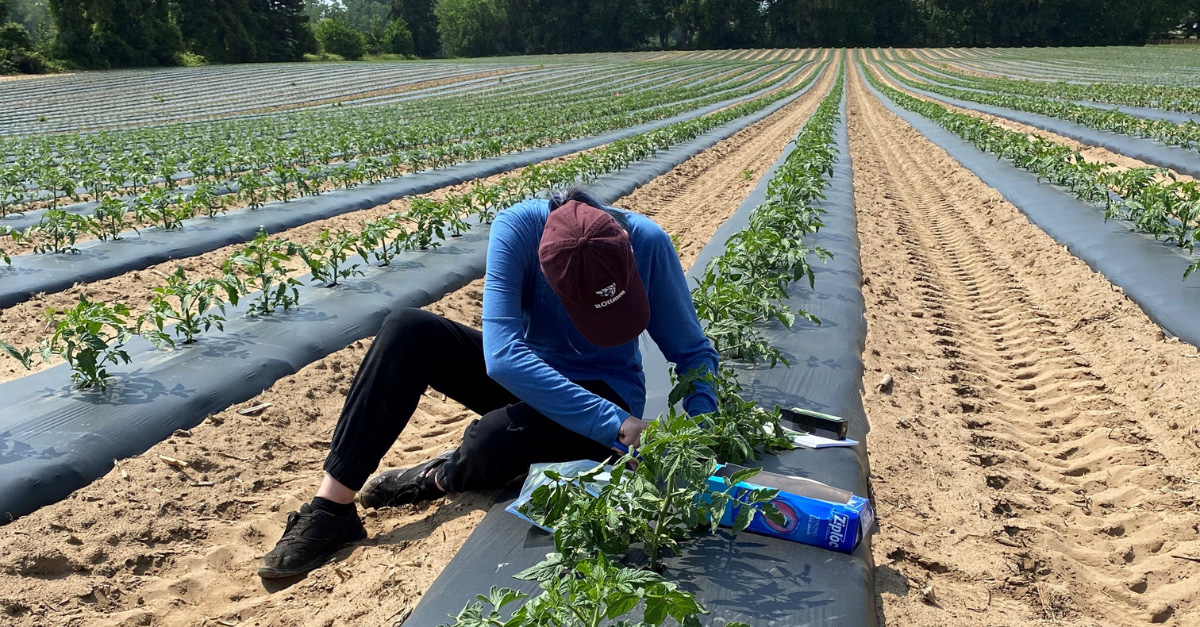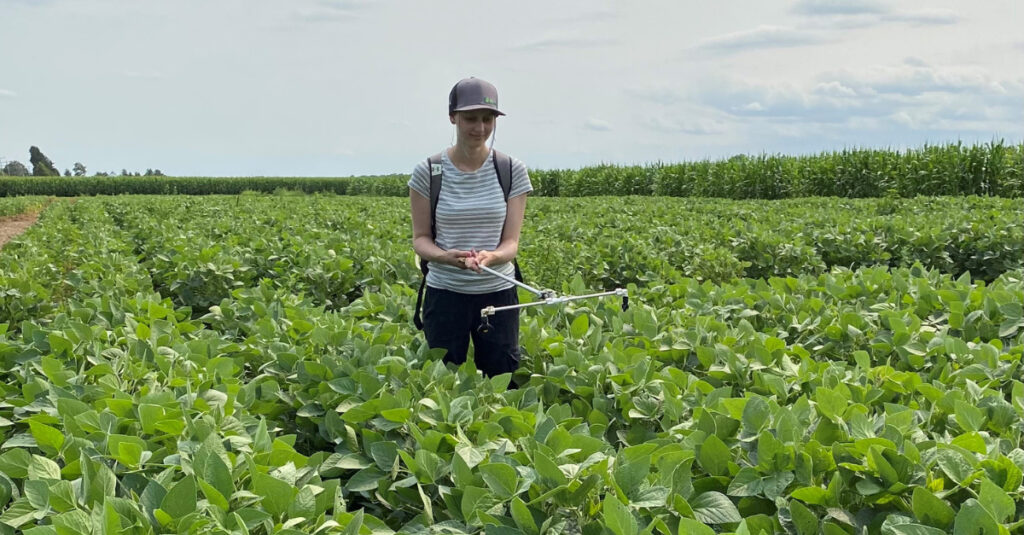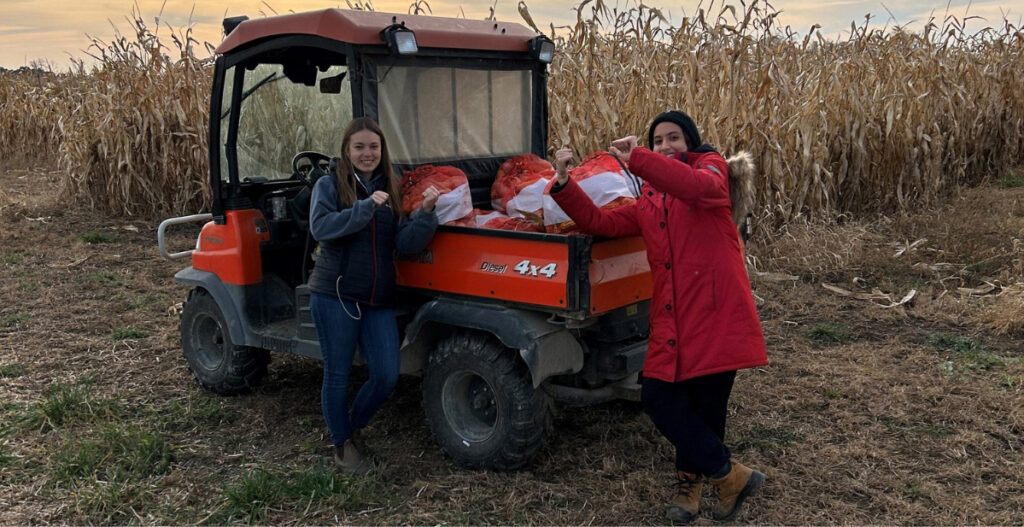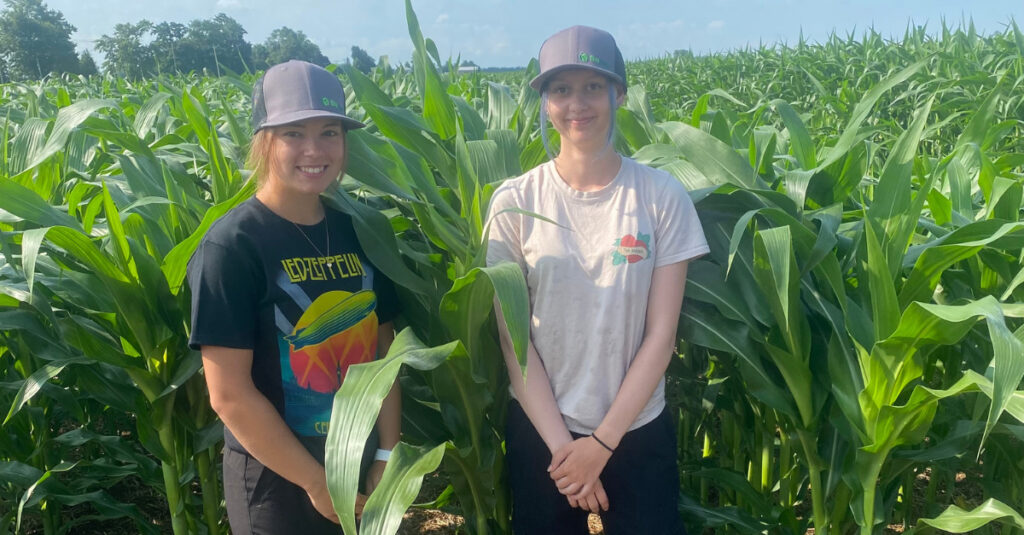
Sustainable crop additive reduces fertilizer use but maintains crop yields, research shows
By Lilian Schaer for Bioenterprise Canada
A sustainable crop additive has demonstrated promising results in reducing fertilizer use without impacting crop yields.
BioLiNE Corporation’s fulvic acid is a plant bio stimulant – a product that helps crops tolerate environmental stressors like heat or lack of moisture, and improves their ability to access, absorb and use nutrients.
The company, headquartered in southwestern Ontario’s Lambton County started production in 2018, with their products available in Canada the United States and Europe for use in corn, wheat, canola, soybean, cotton, potatoes, and many horticulture crops.

In 2023, BioLiNE received funding through the Fertilizer Accelerating Solutions & Technology Challenge (The Challenge), a program funded by the Ontario Ministry of Agriculture, Food and Rural Affairs (OMAFRA) and delivered by Bioenterprise Canada.
“Innovations like this help to ensure that Ontario remains a world leader in food production, which is a key priority for our government,” says Lisa Thompson, Minister of Agriculture, Food and Rural Affairs. “The success we see from BioLiNE highlights how important it is to continue investing in research through initiatives such as the Fertilizer Challenge.”
As part of the project, the BioLiNE team worked on the formula of its base technology to improve production and impacts in the field. They then completed trials with two of their products – BLG and BLX – on corn and soybeans both in randomized replicated field trials and in controlled trials conducted in environment chambers.
“Our primary goal was to improve the impact our technology has on the plant’s ability to use nutrients more effectively and to enhance the efficacy of our fulvic acids,” explains Mohammad Rahbari, BioLiNE’s Executive Vice President, Innovation & Sustainability.

“Our results were successful in demonstrating the potential use of our technology in certain agronomic conditions to improve nutrient use efficiency and preserve yield even when nitrogen, potassium and phosphorus – or in the case of soybeans, simply potassium and phosphorus – are reduced by 30%,” Rahbari says.
The preservation of yield in corn and soybeans despite a reduction in fertilizer use showed a promising result under the field conditions tested in this specific set of trials. The fertilizer rates used for the grower’s standards were made based on field-specific yield calculations by an agronomist.
BioLiNE recommends growers consult an agronomist and conduct trials based on their own fertilizer program and under their farms’ field conditions to determine the potential impact of the BLG and BLX on improving their profitability and sustainability.
The trial also resulted in more even emergence in corn and higher pod counts per plant in soybeans. According to Rahbari, research has shown that when corn emergence is delayed by three to four days, it has a significant impact on the plants’ ability to produce yield, sometimes up to 50% less. Even emergence helps protect yield loss caused by delayed emergence in corn.
The economics tell a positive story for growers as well, and he notes that their products could be a cost-effective way to move farmers from making decisions based primarily on yield per acre metrics to making decisions based on farm profitability.

“Incorporating bio stimulant technologies like ours in combination with other good agronomic practices can help optimize inputs and drop the cost per bushel without impacting yield dramatically,” he adds. “With higher operating cost for farmers this becomes important and we’re starting to see more and more growers change their thinking around profitability.”
In corn for example, in comparing the yield difference between the grower’s standard level of fertilizer application with or without the BLG technology, the BLG crop showed a 1.6x to 2.3x return on investment (ROI). When fertilizer use was cut by 30%, that ROI jumped to 4.3x. In soybeans, for every dollar a grower spent on BLG, they achieved $5.20 to $9.30 return.
As a company, BioLiNE makes ongoing investments in research and development in their search for science-based solutions, and according to Rahbari, the Challenge grant has been valuable in helping expand and accelerate their activities and make their own investments go further.
“This funding focused on commercialization which is a very important piece for us to be able to take products to market faster and demonstrate to growers that they work,” he says. “It has let us generate data and information that we can use to inform the market that we are a company that can help you boost profitability by reducing inputs as well as being more efficient with those inputs.”
In 2023, the Fertilizer Accelerating Solutions & Technology Challenge provided support to Ontario-based organizations with commercialization-ready alternative fertilizer products and technologies to help accelerate their pathway to market and provide new options for growers.
Bioenterprise is Canada’s Food & Agri-Tech Engine, a national agri-technology focused commercialization accelerator. Bioenterprise uses its more than 20 years of industry experience and a global network of experts, mentors, funders, researchers, and industry partners to help small and medium-sized agri-food businesses connect, innovate and grow. Learn more.
-30-
Follow Bioenterprise on social media or subscribe to our channels for the latest industry news, events, and business development opportunities.